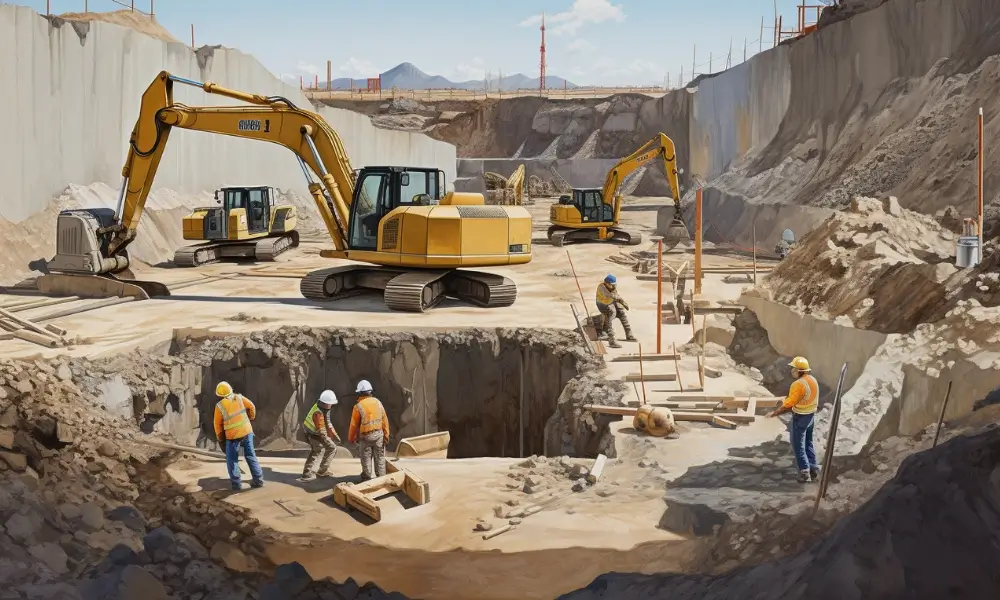Excavation is a crucial aspect of construction projects, providing the necessary groundwork for building foundations, landscaping, and utility installations. However, excavation work poses various safety risks and legal obligations that must be managed effectively. Professional excavation services ensure site safety and compliance with local, state, and federal regulations. By employing advanced techniques, trained personnel, and rigorous safety measures, these services minimize risks associated with excavation while ensuring that projects adhere to legal requirements. We will explore the critical factors contributing to site safety and compliance in excavation services.
Understanding Regulatory Compliance
Compliance with regulations is a foundational aspect of any excavation project. Various laws govern excavation work, primarily focusing on environmental protection, worker safety, and public safety. Excavation professionals must familiarize themselves with regulations imposed by agencies such as the Occupational Safety and Health Administration (OSHA) and the Environmental Protection Agency (EPA). These regulations may include requirements for soil testing, stormwater management, and erosion control. By understanding these regulations, excavation services can ensure their operations align with legal standards, thus avoiding potential fines or project delays.
Additionally, compliance often requires obtaining necessary permits before commencing excavation work. Please ensure these permits to avoid legal repercussions and project halts. Excavation professionals will conduct thorough research to identify the required permits and work closely with local authorities to obtain them.
Moreover, compliance is not a one-time effort; it requires continuous monitoring throughout the project. Excavation services often establish protocols to ensure ongoing adherence to regulations. This includes conducting regular safety audits and reviewing project plans to identify compliance gaps. By proactively adhering to regulatory compliance, excavation professionals safeguard their projects and contribute to broader community safety and environmental protection efforts.
Implementation of Safety Protocols
Safety is paramount in excavation, as it involves heavy machinery, unstable soil, and potential hazards such as underground utilities. Professional excavation services implement stringent safety protocols to mitigate these risks. One fundamental safety measure is conducting site assessments before work begins. This assessment involves identifying potential hazards, including soil conditions, underground utilities, and nearby structures that may affect the excavation process. By understanding these factors, excavation teams can devise strategies to address potential safety issues.
Training is another critical component of safety in excavation. Workers must be trained in safe operation practices for machinery, hazard recognition, and emergency response. Regular training sessions and safety drills help ensure all team members are prepared to handle unexpected situations effectively. Additionally, excavation professionals often equip their teams with personal protective equipment (PPE), such as hard hats, gloves, and safety goggles, to minimize the risk of injury. By fostering a safety-conscious culture, excavation services prioritize the well-being of their workers and the surrounding community.
Another crucial aspect of safety protocols is communication. Excavation teams establish clear lines of communication among team members, site supervisors, and other stakeholders. This communication ensures that everyone involved in the project knows ongoing operations, potential hazards, and safety measures in place. Daily safety meetings may discuss progress, highlight safety concerns, and reinforce the importance of adhering to established protocols. By promoting a culture of open communication, excavation services enhance overall site safety.
Advanced Technology in Excavation
Integrating advanced technology has revolutionized excavation practices, enhancing safety and compliance. Excavation services increasingly utilize GPS, drones, and 3D modeling tools to streamline operations and ensure accuracy. GPS technology allows for precise mapping of excavation sites, enabling teams to identify boundaries and potential hazards more effectively. This technology reduces the risk of overshooting designated areas and inadvertently disturbing underground utilities, thus promoting safety.
Drones are also being employed in excavation projects for site surveying and monitoring. By providing aerial views of the site, drones enable excavation teams to assess conditions from different angles, identifying potential hazards or obstacles before they become problematic. This proactive approach to site assessment contributes to enhanced safety and compliance by minimizing the likelihood of accidents.
3D modeling technology allows excavation professionals to visualize project plans in detail before any physical work begins. By creating virtual models, teams can identify potential design flaws, assess soil conditions, and plan the excavation process more efficiently. This capability improves safety and ensures the project meets design specifications and regulatory requirements. Implementing such advanced technology represents a commitment to innovation in excavation practices, ultimately leading to safer and more compliant project outcomes.
The role of professional excavation services by 503 Excavation serving Gresham, OR, in ensuring site safety and compliance cannot be overstated. These services provide a secure foundation for construction projects through a comprehensive understanding of regulatory requirements, the implementation of rigorous safety protocols, and integration of advanced technology. Collaboration with various stakeholders, including engineers, utility companies, and regulatory agencies, enhances the effectiveness of excavation efforts while minimizing risks. Continuous monitoring and improvement further solidify the commitment of excavation professionals to safety and compliance. By prioritizing these critical factors, excavation services contribute to successful project outcomes, safeguarding the well-being of workers, the public, and the environment.
Keep an eye for more latest news & updates on Gossips!




